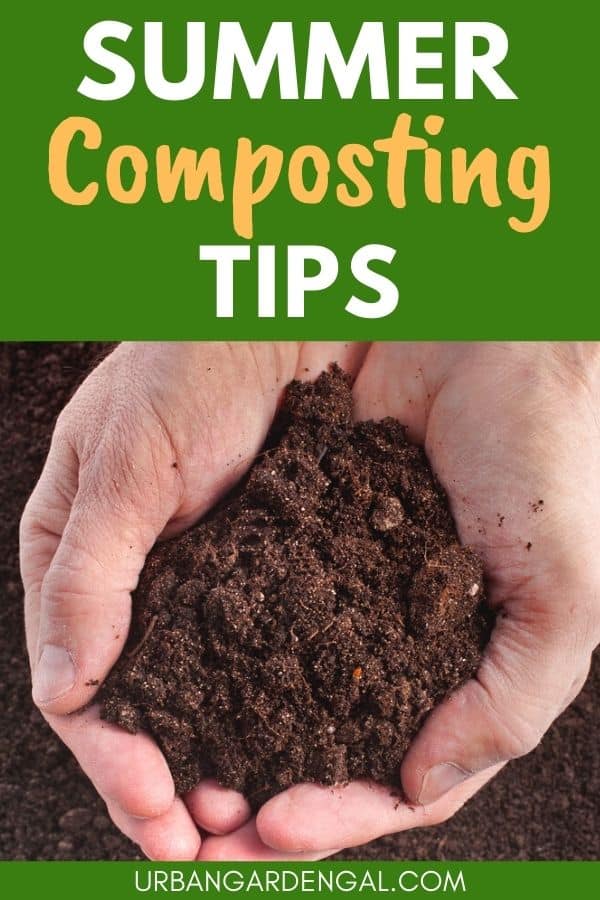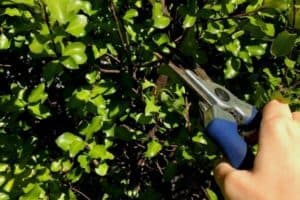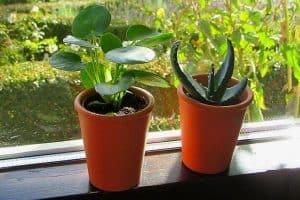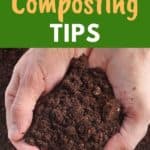Composting in summer is a quick way to break down your kitchen and garden waste into beautiful, nutrient-rich soil for your plants.
In this article I’ll show you how to create a hot compost pile and give you some troubleshooting tips for composting during the summer months.
This post contains affiliate links. Please read the disclosure for more info.
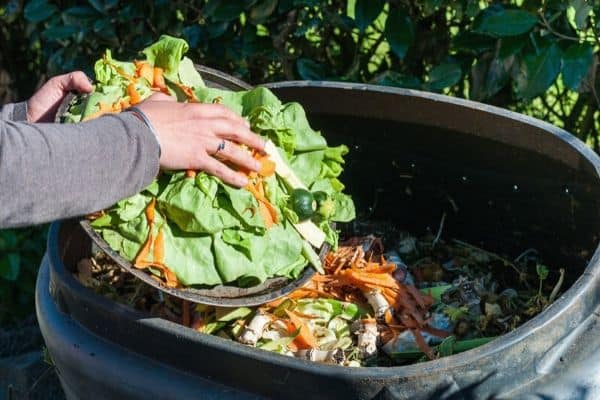
Composting is the process of breaking down organic matter into rich brown soil that you can use in your garden.
The microbes that break down the material are called decomposers, because they literally break things down into their constituent organic compounds.
The aged compost is rich in nutrients including nitrogen, phosphorus and potassium.
Summer composting
Composting in summer is quick and easy because the warm temperatures make it easy for the compost pile to reach and maintain a high internal temperature for successful composting.
The high temperatures help to destroy pathogens including fungal diseases and weed seeds and roots.
A successful compost pile requires one part of nitrogen (“green”) to two parts carbon (“brown”) ingredients.
Green ingredients include fruit and vegetable scraps, lawn clippings and green weeds.
Brown ingredients include dry leaves, hay or straw, newspaper, cardboard, wood chips and sawdust.
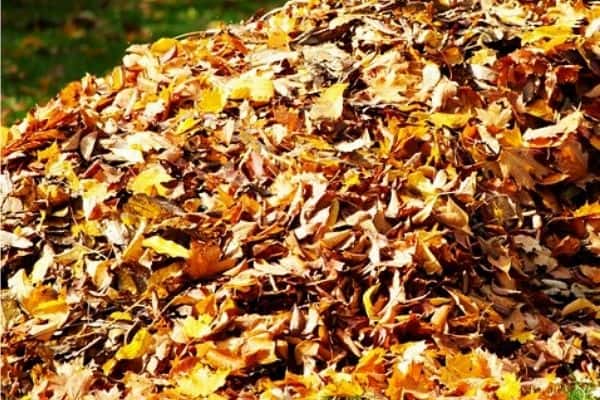
Chopping the ingredients into small pieces will help them to break down faster.
Run over the leaves and weeds with your lawnmower, tear cardboard and newspaper into pieces or run it through your shredder.
If you have a wood chipper you can also chop up sticks and small branches.
Place the materials in thin layers, alternating the green and brown materials.
You can also add a shovel full of soil from your garden to give the compost pile some beneficial microbes to start breaking down the compost.
Keep the compost pile moist and turn it over every week to keep it aerated.
When you dig into the middle of the pile it should be warm and steaming.
How to reduce unpleasant odors
Compost piles and bins can become very smelly, especially in the summer heat.
The two most common causes of unpleasant smells from compost are too much water and too much green material.
Adding more brown materials like straw or cardboard can help to reduce the bad odors.
If you’re having problems with flies, try adding shredded newspaper to the outside of the pile.
How to tell when your compost is ready
When compost is ready to use it will be dark brown with an earthy smell.
If you dig into the compost pile it will still feel slightly damp, but it shouldn’t be wet.
The pH level of the finished compost should be between 6 and 8 and the texture should be crumbly, not sticky.
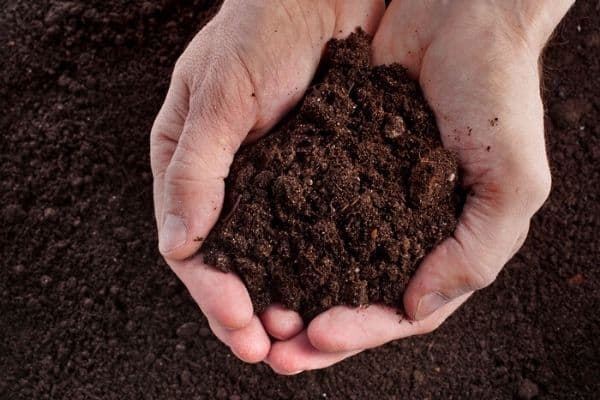
How to spread compost
To use your finished compost, move it to the designated spot in the garden.
Dig it into the top 6 inches (15 cm) of your soil with a shovel or pitchfork.
It’s a good idea to dig compost into your soil in the spring before planting to build your soil’s nutrient levels and improve drainage.
RELATED ARTICLES
So there are my tips for composting during the summer months.
If you have space for a compost pile it’s definitely worth making your own homemade compost and summer is the perfect time to get started.
Have you tried summer composting in your garden? Let me know in the comments below.
Are you on Pinterest? I have boards dedicated to Vegetable Gardens and Garden Ideas that you may find interesting. You can also find me on Facebook.

